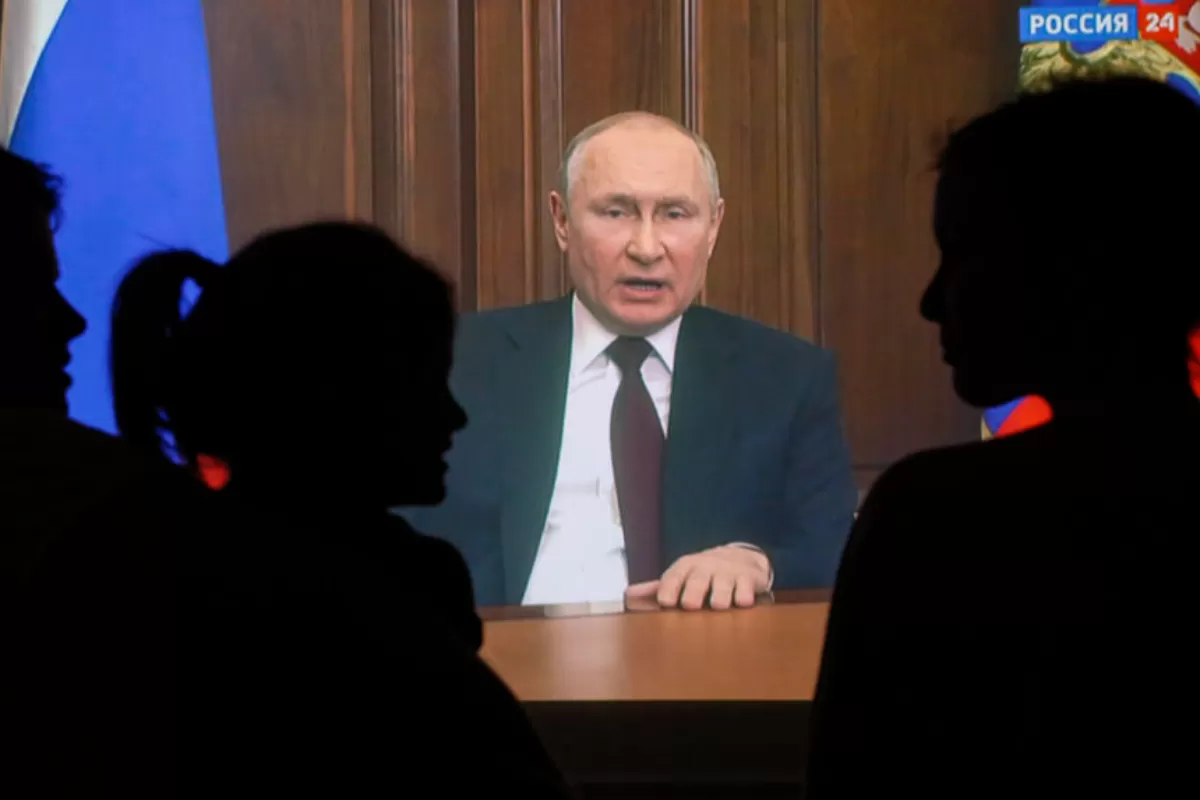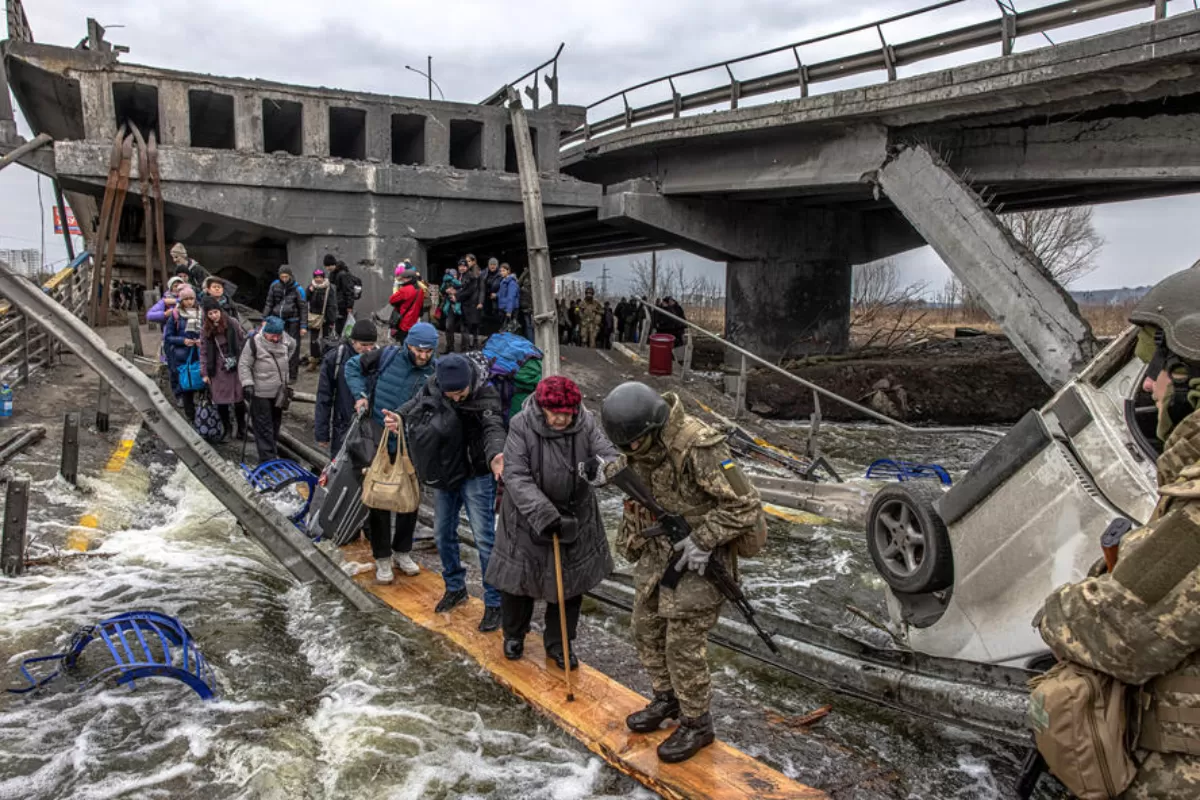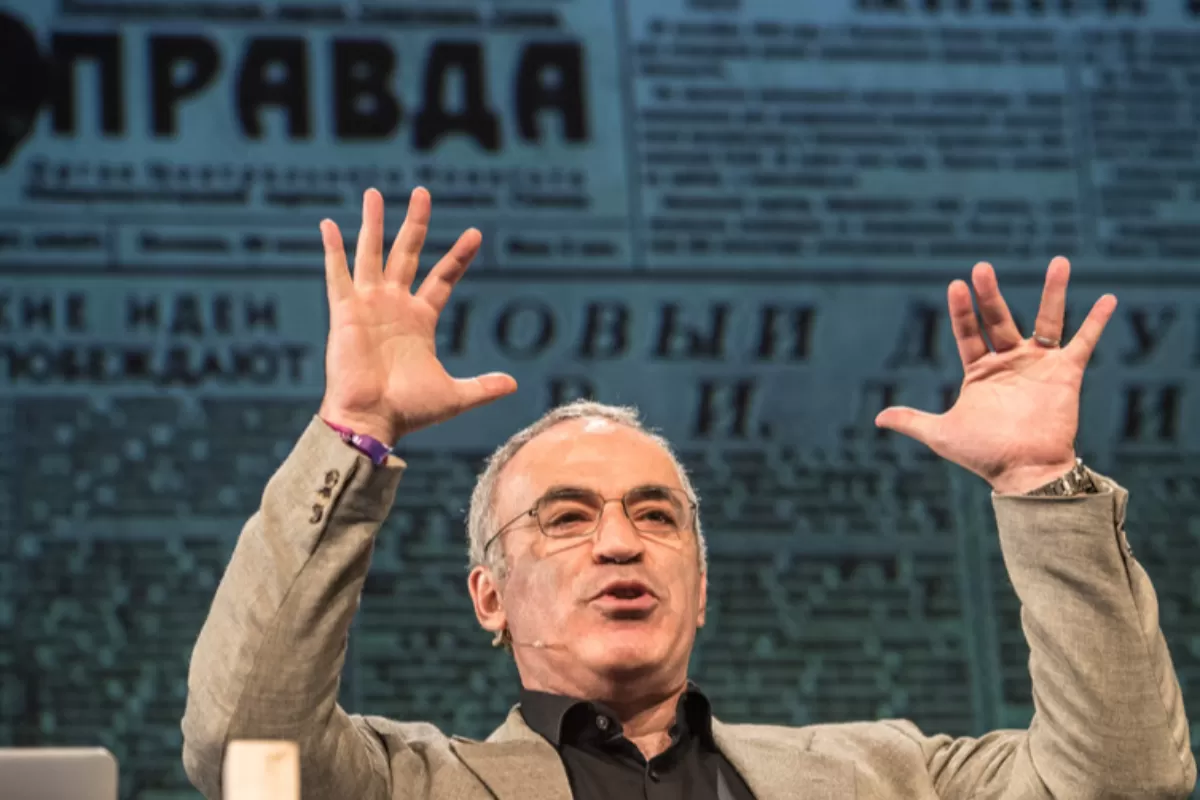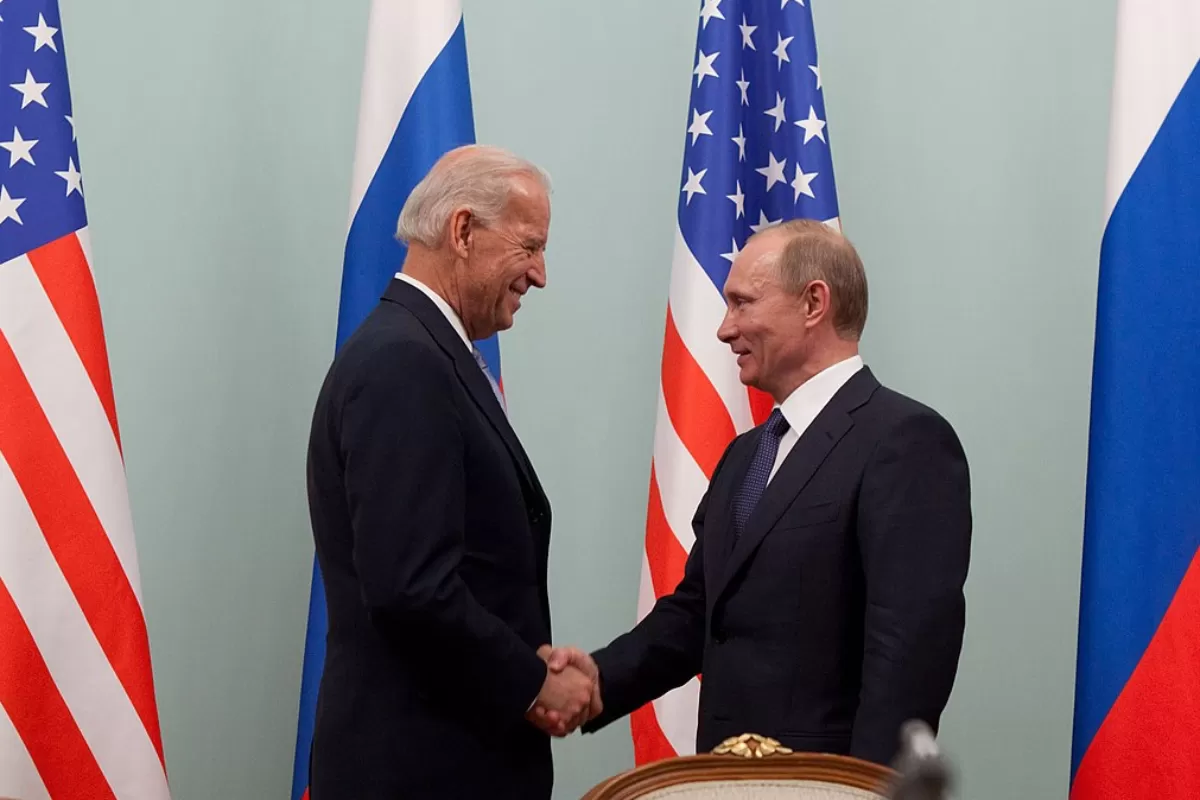
The Proekt team, declared an undesirable organization in the Russian Federation last year, returns with an extensive investigation into Vladimir Putin's health problems. The Insider writes how, before being assassinated, the politician Boris Nemtsov was pursued by FSB agents later involved in the poisoning of Alexei Navalny. Russian publicists are also pondering the chances of Putin being tried by the Hague Tribunal for war crimes.

Putin wants to change the European Order, and he probably will, just not the way he imagined. The war in Ukraine, which has prompted a reaction in block in the West, throwing sanctions at Russia from all sides, might just be the last for Putin. But perhaps the most important development is the restructuring of NATO forces on the eastern flank.

With the outbreak of war in Ukraine, the Kremlin has tightened its grip on information reaching the Russian public. The little independent press that still existed and was trying to provide information about what was really going on in Ukraine was practically silenced. Veridica flipped through independent media articles published just before total censorship was installed in Russia.

The recognition of the separatist republics in Donbass, which was an intermediate step towards the total invasion of Ukraine, could prove to be one of Putin's biggest mistakes and the beginning of the end for his regime.

Despite the government's censorship and the triumphant image of the war that the Kremlin sells to the public, the Russian independent media is trying to accurately report on both what is happening on the ground and the possible consequences of Vladimir Putin's war.

Vladimir Putin is a good Christian, but his image has suffered because of Russophobia. These false narratives are based on statements made by the Archbishop of Thomis, Theodosius, and amplified by Sputnik. At the same time, the idea that Putin and Russia have nothing to do with Communism, which was imposed by the West, is also promoted.

The Western Balkans appear to be playing an increasingly important role in Russia's plans. Through its leverage in the region, Moscow is able to generate enough problems that require the attention of the West and diminish its ability to manage crises elsewhere - for example in the former Soviet Union.

NATO's refusal to accept Russia's latest demands against the background of the crisis in Ukraine has heightened fears that Moscow is preparing for war. It is a possible scenario, but one that would be extremely costly for Russia, even if it wins the fighting on the ground.

The chess great spoke with Veridica about his fight for democracy and human rights, the new type of totalitarianism in Russia and what the West should do to stop Putin. Garry Kasparov told us that he is not worried that the regime is trying to eliminate him from textbooks because, in the long run, it is not the dictators who write history. He also said that there is no point in fearing that he will be assassinated because “If someone like Putin decides that you are next on the list, it doesn’t matter if you have protection or not. You go.”

Russia carries out a classic type of diplomatic activity, within the law, while other diplomats accredited to Bucharest interfere in Romania's internal affairs, says Russian Ambassador Valeri Kuzmin, who repeats the fake narratives used by the Kremlin in its attempt to pose as a victim.

The latest tensions between presidents Joe Biden and Vladimir Putin are definitely giving political analysts from all over the world a headache, as they try to decrypt the discourses of the two presidents and somehow foresee where they’re leading. The United States and Russia have a number of imporant topics on their current agenda, such as the developments in Ukraine, Syria, the Iranian nuclear file or the situation in Northern Africa. USA and Russia also fell out over the poisoning and sentencing of opposition leader Alexei Navalny, the SolarWinds cyber-attacks scandal and Moscow’s bounties on US troops in Afghanistan.

As a Dutch Court is handling the case of the civilian airline passenger Boeing MH17, which was shot down over Ukraine in 2014, the narratives concerning the incident are resurfacing. This time it is claimed that the aircraft was mistaken for the Russian President’s plane. The Russian media is also highlighting a turn of events that may be soon witnessed as the reports filed by a Russian company were admitted.

The EU and Ukraine reconfirmed their readiness to continue cooperation under the Association Agreement, which was an opportunity for a new disinformation campaign launched by the Russian press against Ukraine and the EU. "A catastrophe that’s been lasting for five years now, in every sphere of life", "a wrong foreign policy choice made by Ukraine" – are some of the reactions in the Russian press. Elements of typical narratives are present, such as: "fake state", "coup d'etat", "Russophobia", "poverty", etc.

What makes Serbia interesting to anaylze when it comes to Russia's influence is the already formed pro-Russian public opinion. Therefore, the question arises whether Russia in Serbia has a need to invest in strengthening its influence when public opinion is already in its favor. It is enough to look at the cover pages of the Serbian daily press where you can often see Vladimir Putin, as well as the media reporting on Russia so you can get the impression that the pro-Russian narrative is possibly created by Serbian journalists and editors. It means that pro-Russian narrative is not sponsored or created by Kremlin.

During the visit to Moscow of the EU’s foreign policy chief, Josep Borrell, a visit marked by quite a few controversial moments, Russia announced the expulsion of three EU diplomats in an act of public shaming that has infuriated many people.

On January 26, Joe Biden spoke for the first time with Vladimir Putin as President of the United States. The two had known each other for years, but their conversation does not seem to have been a discussion between two friends meeting again, or an exchange of pleasantries between the heads of two states who want to make a first contact and test the waters.

Perdant în recentele alegeri prezidențiale din această toamnă, Igor Dodon încă se agață de putere în interiorul Partidului Socialiștilor din Moldova (PSRM), dar și în fața susținătorilor săi externi de la Kremlin.

The results of the US presidential election are forcing Russia to focus on its own hybrid efforts in the EU. Only there does Russia have a prospect of success. Only in the EU there is room for active maneuvers and a powerful pro-Russian lobby.

The more hybrid our reality gets, the more hybrid warfare becomes. The statement is Russia’s latest informal creed, underlying a disproportionate war waged abroad. For that, the country has been using a “no man’s army”, and its best-known avatar is the Wagner Group.

Russia uses an aggressive rhetoric to disguise its lack of ideas and even real interest in Moldova. Transnistria – a pawn for future exchanges, tightly controlled by the Sheriff